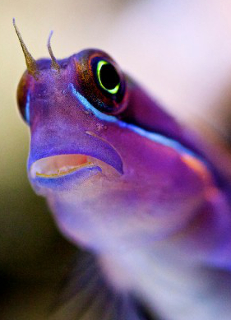Reef fish adaptation studied
 The most adaptable reef fish are more likely to thrive as the climate warms, a new study finds.
The most adaptable reef fish are more likely to thrive as the climate warms, a new study finds.
New research on the ecological shifts occurring under the ocean's surface suggests that tropical fish species capable of undergoing significant adaptations are finding more success in novel habitats compared to their temperate counterparts.
The study shows fish species are adjusting their ecological traits - such as behaviour, diet, and habitat choice - to enhance their success in unfamiliar environments.
Researchers evaluated the ecological traits and physiology of both local temperate fish species and tropical fish species that are expanding their range into new territories.
The study spanned a 2000 km latitudinal gradient, looking at various factors including habitat niche, abundance, physiological performance, and cellular defence/damage of both coral reef fishes extending their range and coexisting local temperate fishes.
A key observation was that coral reef fishes, which expanded their ecological niches, exhibited stronger establishment, increased physiological performance, and cellular damage, but a decrease in cellular defence at the colder edge of their range.
Conversely, tropical species that did not modify their ecological niches showed lower establishment rates.
The findings underscore the importance of ecological generalism, indicating that fish species
As the climate continues to warm, the adaptability of reef fish emerges as a pivotal aspect of their survival, with generalist species showing a greater capacity to cope with the changing conditions.








 Print
Print